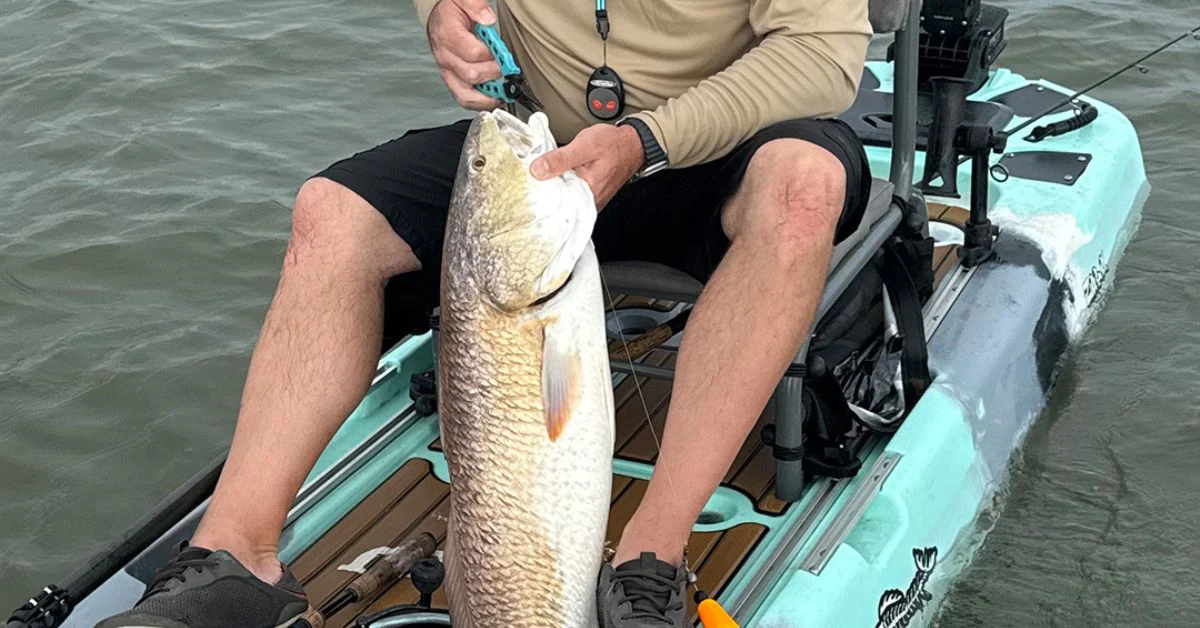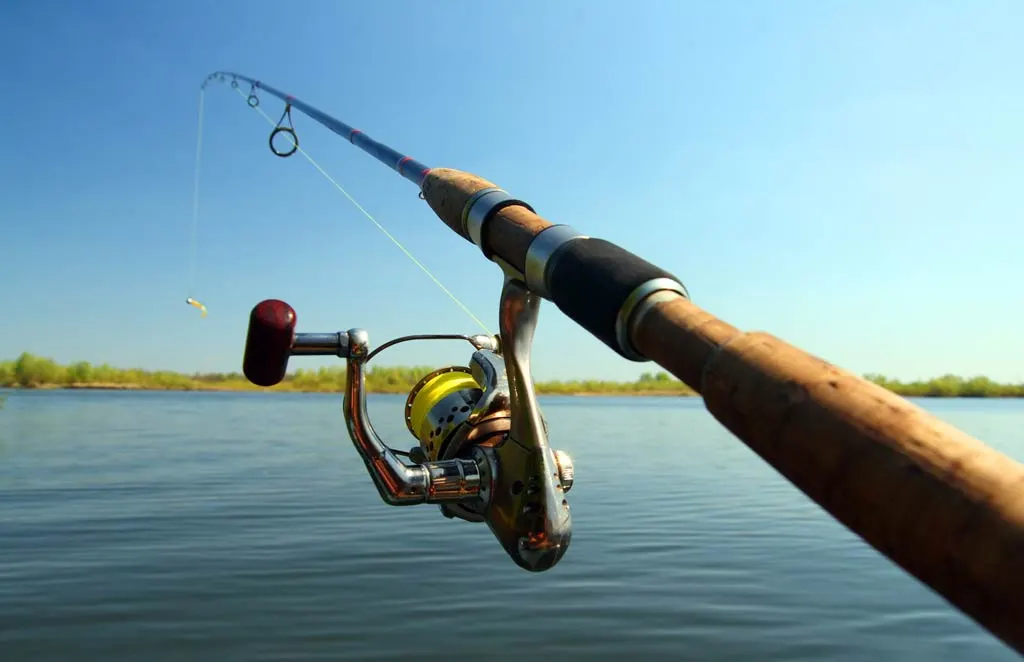Freshwater vs. Saltwater Fishing: Key Differences, Gear, Pros, Cons, and How to Choose
Every time I pick up my fishing rod I face a tempting choice: do I head to a quiet lake or river or set my sights on the open sea? Freshwater and saltwater fishing each offer their own unique thrills and challenges and I’ve found that the experience can change completely depending on where I cast my line.
Whether I’m drawn to the peaceful stillness of inland waters or the unpredictable adventure of the ocean the decision isn’t always easy. Both environments promise unforgettable moments but they also call for different gear techniques and expectations. If you’re wondering which type of fishing suits you best you’re not alone—I’ve asked myself the same question more times than I can count.
Understanding Freshwater vs. Saltwater Fishing

Understanding-Freshwater-vs-Saltwater-Fishing
Freshwater fishing happens in lakes, rivers, ponds, and streams. I find bass, trout, catfish, and panfish in these environments. Saltwater fishing takes place in coastal bays, oceans, and seas where I target species like redfish, snook, tuna, and marlin. These two waters demand different gear, techniques, and knowledge.
Freshwater gear usually weighs less and works for casting or spinning rods with lighter lines and smaller lures. Saltwater fishing requires robust rods, reels with higher line capacity, and gear that resists corrosion from salt. Some tackle, like bait and lures, also differs because saltwater fish often chase larger, faster prey.
Fish behavior in freshwater and saltwater varies by location and environmental conditions. I notice freshwater species display more predictable habits based on water temperature, time of day, and structure like submerged logs. Saltwater fish respond to tides, currents, and weather patterns since the ocean environment shifts quickly.
Skill development in these two fishing types follows different learning curves. In freshwater, I refine casting accuracy and learn local species’ feeding patterns. In saltwater, I need to adapt to bigger fish, specialized bait, and boat handling for offshore trips. Both forms present unique rewards and challenges if I align my equipment, knowledge, and techniques to the chosen environment.
Key Differences Between Freshwater and Saltwater Fishing
Freshwater and saltwater fishing differ at every stage, from the species targeted to the environment and the gear used. I notice unique challenges and rewards in each setting, whether casting from the shore of a quiet lake or venturing into the open sea.
Types of Fish Species
Species diversity defines the experience in both environments. When I fish freshwater lakes, rivers, and ponds, I usually target smaller species like bass, trout, catfish, pike, muskie, panfish, and salmon. Saltwater fishing introduces me to larger, more powerful fish—tuna, marlin, mahi-mahi, snapper, grouper, tarpon, and sharks are common examples. The average size and fighting strength of saltwater species typically eclipse those in freshwater scenarios, making species selection one of the main distinctions.
Fishing Techniques and Gear
Techniques and equipment selection reflect the demands of each environment. My freshwater trips use lighter, more versatile rods and reels, perfect for casting, trolling, fly fishing, and even ice fishing in winter. Baits consist of live worms or artificial lures, suited to the smaller fish I encounter. For saltwater fishing, I rely on heavier, corrosion-resistant gear capable of handling stronger fish in harsher conditions. Tactics shift to include trolling, jigging, bottom fishing, and deep-sea methods, and I often use boats to reach offshore locations. The gear’s durability and specialization distinguish saltwater from freshwater methods.
Environmental Conditions
Environmental factors dictate my preparations and safety considerations. Freshwater fishing happens in calm inland waters, offering easier and safer access, particularly from the shore or small boats. Conditions tend to be more predictable, making freshwater angling suitable for beginners. Saltwater environments, especially offshore, expose me to rougher waters, high salinity, and added risks like sun exposure and large waves. Navigating these conditions demands extra skill, stronger physical endurance, and a solid understanding of marine safety. The contrast in accessibility and risk level distinctly separates freshwater from saltwater fishing.
Pros and Cons of Freshwater Fishing

Pros-and-Cons-of-Freshwater-Fishing
Freshwater fishing gives me easy entry compared to saltwater alternatives, since most lakes, rivers, or ponds sit closer to where I live. This accessibility keeps my fuel costs and travel time low. Equipment for freshwater angling costs less too, with lighter rods, simple tackle, and minimal boat requirements if any.
Safety becomes less of a concern for me in freshwater settings. Calm waters in lakes or rivers carry few dangers beyond slips on wet rocks. I don’t worry about sun poisoning, falling overboard on rough seas, or dealing with unexpected weather changes as often as saltwater anglers do.
Flexible scheduling lets me fit fishing trips into my routine. Quick hours at the pond or a weekend afternoon on the river mean I don’t plan lengthy excursions, which helps when time’s limited. I often hook bass, catfish, or trout fast and return home without hassle.
Beginner-friendly conditions make freshwater fishing ideal if I’m learning or introducing someone new. Fish found here, like bass or trout, don’t grow as large or aggressive as most saltwater species, so handling and landing them poses fewer challenges for novices and kids.
However, freshwater fishing means I rarely catch trophy-sized fish. Most freshwater species, such as largemouth bass, catfish, or trout, max out at about 16 pounds and 3 feet, offering less excitement if I seek larger game. The available species remain familiar, with less variety than what saltwater fishing offers. If I chase exotic or rare catches, or if I crave demanding fights on the line, freshwater has limits compared to the diverse and powerful fish found in the ocean.
Pros and Cons of Saltwater Fishing
Saltwater fishing brings bigger and more diverse catches into play, drawing me to species like blue marlin, tuna, sharks, and octopus that never show up in freshwater environments. I can access more fishing techniques, including trolling and deep-sea fishing, which keep my experiences fresh and challenging. My saltwater gear handles corrosive conditions and extreme fish strength, built for durability and reliability when I’m far from shore.
I often notice the downsides start with cost and accessibility. I find myself investing more in travel, heavier tackle, and specialized equipment than I do for freshwater trips, especially if I’m targeting offshore locations away from my home. Every battle with powerful saltwater fish tests my physical condition since these fights last longer and demand real stamina. Environmental challenges, including rough waves and the risk of seasickness, mean I need solid preparation before every trip to saltwater areas.
Saltwater fishing always gives me intense variety and adventure, as long as I’m prepared for the higher investment and tough marine environments.
Choosing the Right Fishing Option for You

Choosing-the-Right-Fishing-Option-for-You
When I consider where to fish, I focus on a few distinct factors: water conditions, fish size, gear, safety, skill level, and my own preferences.
For beginners or those who value convenience, freshwater fishing offers easy access. Lakes, rivers, and ponds usually sit close to home and have calm waters, which creates a relaxed environment for fishing trips. I find lighter rods and less expensive gear fit freshwater settings best, especially when catching species like bass, crappie, or bluegill. Trips cost less and last a few hours rather than an entire day, making it easier to fit into my routine.
When I seek bigger challenges and larger fish, saltwater fishing draws me in. The ocean presents more powerful species—examples like mahi-mahi, king mackerel, and tuna mean longer fights and heavier gear. I always need strong, corrosion-resistant tackle to handle saltwater and the forceful pulls of ocean-faring fish. Saltwater environments also demand more experience managing tides, currents, and boat navigation, so I rely on guides or advanced skills for safety.
Cost and time also factor into my choice. Freshwater fishing keeps costs low and allows for frequent trips. Saltwater fishing involves higher expenses for travel, licenses, and specialized equipment, and I usually dedicate an entire day or more when heading out into the ocean.
Personal goals shape my decision every time. When I crave a memorable adventure and the thrill of reeling in giant fish, saltwater fishing feels right. When I want a peaceful morning and a dependable catch, I stick with freshwater spots. By considering my location, experience, available time, and what I want from each outing, I can match the best fishing option to my interests.
Conclusion
No matter which type of fishing I choose I always find something rewarding on the water. My decision often comes down to what kind of day I want to have and how much time and energy I’m ready to invest. Both freshwater and saltwater fishing offer their own brand of excitement and relaxation.
Whether I’m casting into a quiet lake or braving the open sea I know I’ll walk away with new stories and memories. The best part is that I can always switch things up and keep my fishing adventures fresh and exciting.
Frequently Asked Questions
What is the main difference between freshwater and saltwater fishing?
The main difference is the environment and fish species. Freshwater fishing happens in lakes, rivers, and streams with smaller, predictable fish, while saltwater fishing takes place in coastal bays and oceans, offering bigger, powerful fish and more variety.
What gear do I need for freshwater versus saltwater fishing?
Freshwater fishing uses lighter rods, reels, and lines due to smaller fish and calmer waters. Saltwater fishing requires heavier, corrosion-resistant equipment to handle larger fish and withstand the salty environment.
Which type of fishing is easier for beginners?
Freshwater fishing is generally easier for beginners. It offers easy access, calmer water, basic equipment, and more predictable fish behavior, making it less intimidating than saltwater fishing.
Is saltwater fishing more expensive than freshwater fishing?
Yes, saltwater fishing is usually more expensive. It often involves higher travel costs, specialized gear, heavier tackle, and sometimes the need for a boat, all of which add to the expenses.
What are the safety considerations for both types of fishing?
Freshwater fishing is typically safer due to calmer waters and easier access. Saltwater fishing can be riskier, with rough waves, stronger currents, and dangers like seasickness, requiring more awareness and preparation.
What are the main advantages of freshwater fishing?
Freshwater fishing is affordable, convenient, beginner-friendly, and less physically demanding. It offers flexible scheduling and is accessible for those living near inland bodies of water.
What are the main advantages of saltwater fishing?
Saltwater fishing offers bigger, more diverse fish, and various exciting techniques like trolling or deep-sea fishing. It provides the thrill of catching trophy-sized species and adventure in ocean settings.
How do I decide between freshwater and saltwater fishing?
Consider your location, budget, skill level, and fishing goals. If you value ease, convenience, and cost, freshwater is ideal. If you seek adventure, bigger fish, and have more experience, saltwater fishing is a better choice.
Does fish behavior differ in freshwater and saltwater environments?
Yes, freshwater fish tend to have predictable habits and reside in familiar spots. Saltwater fish respond to changing tides and currents, making their behavior less predictable and sometimes more challenging to target.
Can I use the same fishing techniques in both environments?
Some techniques overlap, but many are unique to each environment due to fish size, behavior, and water conditions. Saltwater fishing might involve deep-sea or trolling methods, while freshwater fishing uses lighter setups and simpler techniques.
